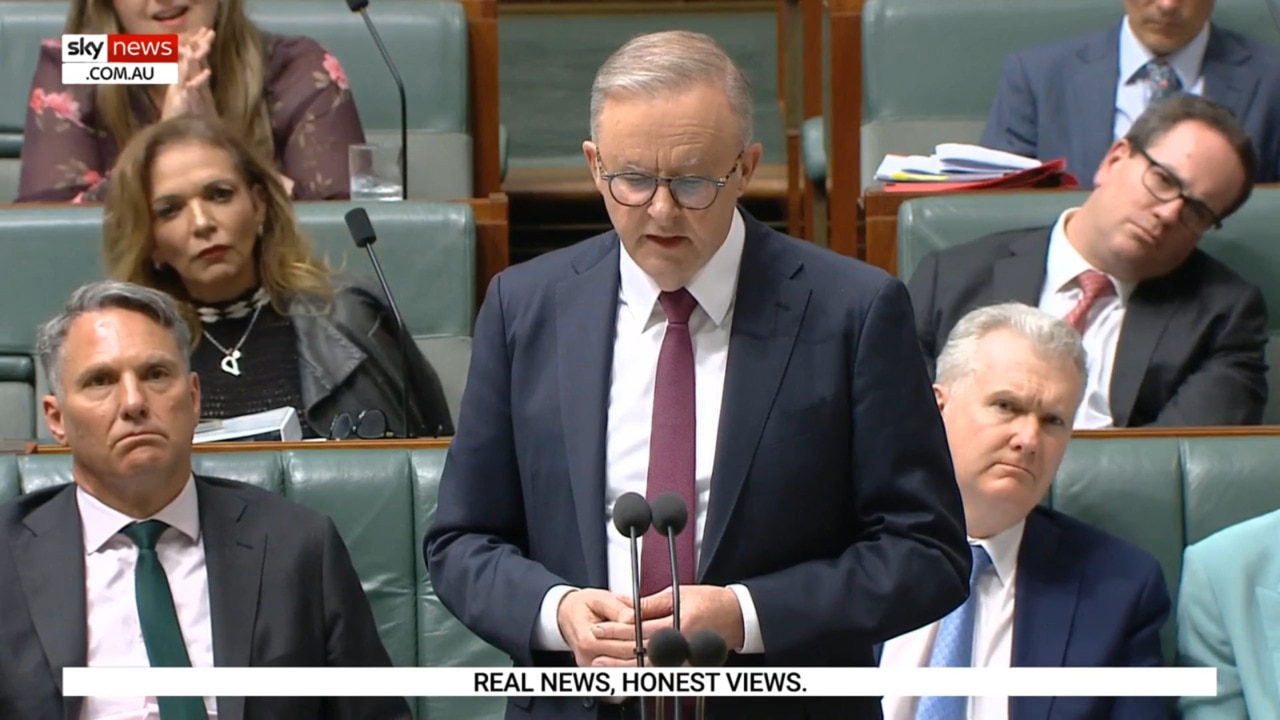Terry McCrann: Company directors should pay the costs of backing ‘Yes’ campaign
Company directors who poured shareholder funds into the failed ‘Yes’ campaign should dip into their own pockets to cover the costs.

Business
Don't miss out on the headlines from Business. Followed categories will be added to My News.
It obviously, of course, is not going to happen, but boards of directors of publicly listed companies really should be held personally financially accountable for the more egregious corporate decisions.
We’ve just had two important examples, in very different contexts.
The most immediate and most obvious was the big companies that decided to pour shareholder money into the ‘Yes’ campaign, so boards and management could preen and pontificate.
They included the four big banks – self-evidently, directly against the wishes of six-out-of-ten of their customers, and of their individual shareholders, whose money they were gratuitously spending.
Plus the big four accounting firms and the three major resources groups – BHP, Rio Tinto and Woodside Petroleum.
As I’ve written, fat lot of good it did Woodside, with the “voice” of a single Aboriginal able to put its multi-billion dollar Scarborough gas project on ice, at the cost of tens of millions of dollars to shareholders.
I’m all in favour of public company directors putting their money where their mouths are.
That’s, to stress, their money, not that of shareholders – especially where holders have emphatically and very publicly and undeniably voted against such spending of their money.
There is thus a very good case that all the directors of BHP, Rio, Woodside, CBA, ANZ, Westpac, NAB and all the rest should have their director fees clawed back to cover company donations taking sides on such a divisive referendum and one that was rejected so overwhelmingly.
These directors have placed themselves squarely and literally on the wrong wide of history, and of their fellow Australians, and plundered shareholder money to do so.
Indeed, if they had any sense of self-regard, they would volunteer to have their director fees clawed back.
Now, the second example also involves ANZ.
Back in 2015, ANZ raised $2.5bn in a share placement to institutional investors.
At the time it ‘omitted’ to tell both its own shareholders and the market generally that nearly a third of the money – just under $800m – had been tipped in by the underwriters. The big instos had only subscribed for $1.7bn.
This was information that the ANZ was legally obliged to disclose under the stock exchange listing rules.
It was critically relevant, market-sensitive information, not only to ANZ shareholders, but the market generally.
The Federal Court agreed Friday. It ruled ANZ had breached its continuous disclosure obligations; with the penalty to be imposed later.
There have in fact been two failings by the ANZ board.
The initial failing in 2015, of their very own shareholders whose interests they purport to represent, of the non-disclosure.
So I would argue the ANZ directors, as they were in 2015, should have their director fees clawed-back to cover the cost of the coming fine and costs.
The second failure was arguably even worse: refusing to accept the original breach, fighting ASIC all the way up to and including the decision Friday.
At a cost of how many millions? Again, that should be clawed back from director fees paid since 2015.
And then there’s the little matter of the Hayne royal commission.





